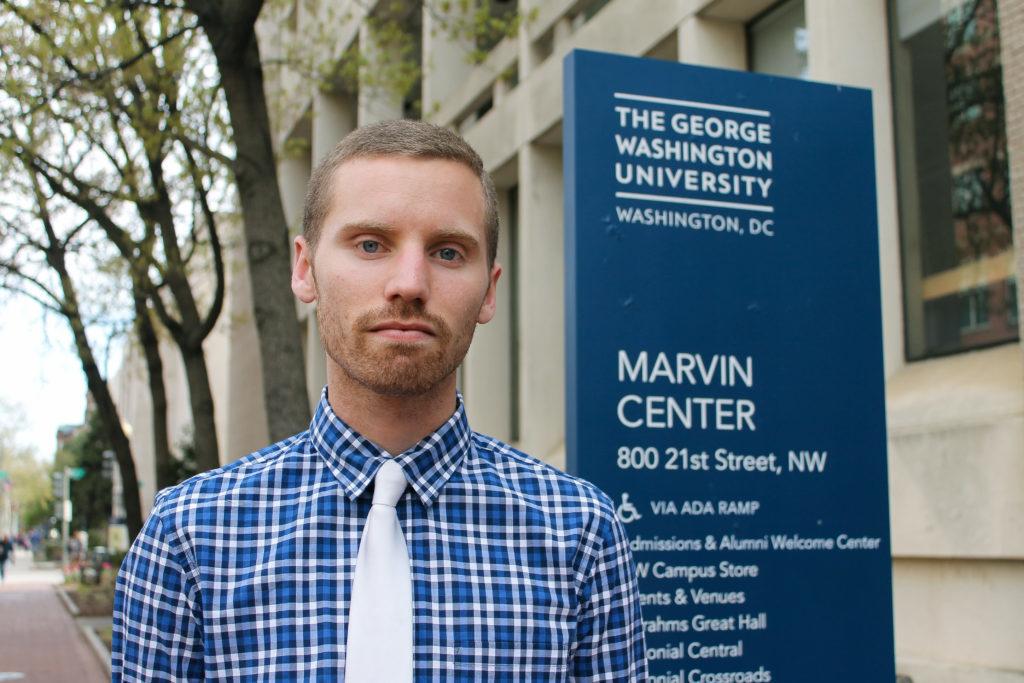Eight months after student leaders launched an effort to examine the problematic pasts behind University building names, the project is at a standstill.
An informal task force of about 10 students formed in September to research the problematic history of building names around campus. After eight months of research and administrator meetings, the group has not yet recommended any formal name changes to officials, and membership dropped to just two students amid other campus controversies.
Student leaders who initiated the task force said they aren’t concerned about the task force’s progress because the project is a long-term undertaking with no set beginning and end date. The group centered their efforts around the Cloyd Heck Marvin Center – named after a former University president who was a proponent of segregation.
Imani Ross, a former Student Association senator who organized the group, said the task force is a lengthy project that requires a joint effort between students and administrators. She said members of the task force have met with administrators like University President Thomas LeBlanc and Anne Graham, the assistant director of student involvement and Greek life, this academic year to discuss the group’s research.
“The president has prided himself on focusing on the student experience,” Ross said. “The moment we begin serious collaboration is the moment his vision comes into fruition.”
Ross said the task force is compiling a report of recommendations to give to the University, but that there have been no formal proposals made because the group is “not at that stage yet.” She declined to say if LeBlanc has been responsive to the task force’s plans so far.
Tim Miller, the associate dean of students, and Terry Murphy, the deputy provost for academic affairs, were also in communication with leaders of the group to strategize how the task force can move forward, Ross said.
“Hopefully we can continue to increase awareness and potentially release a report on our findings within the next year,” Ross said. “But it isn’t anything to be rushed, so I’m hopeful but patient.”
University spokeswoman Maralee Csellar said students involved in the task force have expressed “concerns about the full nature of what President Marvin and his family represent to the GW community,” but there has not yet been a formal proposal to change its name.
Csellar declined to say how many times administrators have met with students, if students have presented research about building names to administrators and how officials reacted to students’ concerns about the Marvin Center name. She also declined to say if the University has plans to rename or re-evaluate the name of the Marvin Center and how administrators will continue conversations with students in the task force over the next academic year.
The task force was initially comprised of about 10 members from the SA and student organizations, including representatives from GW’s chapter of the NAACP, GW Democrats and Young Democratic Socialists of America.
But Sen. Jan Yonan, CCAS-U, said he and Ross are the only remaining students still leading the effort despite initial involvement from student leaders and attempts to collaborate with student organizations.
When Yonan, who is a senior, graduates at the end of the academic year, the task force will dwindle to just one member, Ross.
“We have definitely attempted to collaborate with various different students, some of which were mentioned and others popped up later in our efforts,” he said. “I would say quite frankly it has been Imani and me for a majority of it.”
Yonan said researching the past of the Marvin Center name has remained the group’s main focus because of a student-wide push to rename the student hub. Ross and other student leaders hosted a town hall last March at the Multicultural Student Services Center to discuss renaming the building – an event that drew mixed reactions, as some students were uncomfortable with the name and others said it wouldn’t make a significant change to campus climate.
“Students that have some knowledge of the University history have mixed feelings about the Marvin Center, largely because it is the hub of campus life,” Yonan said. “It is certainly a focal point for any sort of external relations with the University, specifically admissions.”
Keiko Tsuboi – the chapter leader of YDSA, a student organization that supported the task force – said students involved in the task force may have shifted their focus to other priorities, like drafting a list of demands after a racist Snapchat post depicting members of Alpha Phi circulated around campus in February.
“Half of the students involved were already working on multiple projects to improve the school,” Tsuboi said. “When the Alpha Phi stuff happened the immediate priority became forming those demands and working with administration on safety and the climate.”




